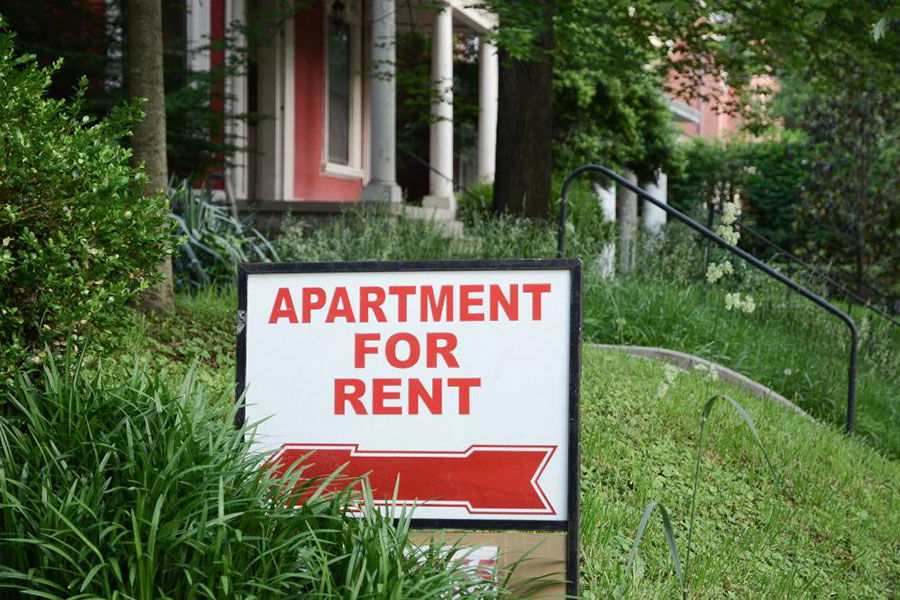Most homeowners are surprised to learn how expensive it is to sell a house. It’s not just about paying the real estate agent. Once you factor in commissions, closing costs, inspections, repairs, and moving, the total often adds up to 5% to 10% of the home’s final sale price.

Knowing what expenses to expect ahead of time helps you budget properly and avoid last-minute surprises. In this guide, we’ll break down the typical costs of selling a house, explain which ones are required and which are optional, and show you how to keep more money in your pocket.
Key Takeaways
- Selling a home typically costs 5% to 10% of the sale price, with major expenses including agent commissions, repairs, and inspections.
- Required costs often include repairs, closing fees, and inspection expenses, while optional add-ons like home warranties or title insurance can increase your total.
- You can save money by selling “for sale by owner” (FSBO), comparing service providers, and focusing only on upgrades that deliver a strong return.
Average Costs of Selling a House
On average, sellers spend between 5% and 10% of the home’s sale price on transaction costs. That means a $300,000 home can cost anywhere from $15,000 to $30,000 to sell once everything is added up.
Here’s a quick look at how the math works out at different price points:
| Home Sale Price | Estimated Costs at 5% | Estimated Costs at 10% |
|---|---|---|
| $200,000 | $10,000 | $20,000 |
| $250,000 | $12,500 | $25,000 |
| $300,000 | $15,000 | $30,000 |
| $350,000 | $17,500 | $35,000 |
| $400,000 | $20,000 | $40,000 |
This range covers everything from real estate agent commissions and closing fees to optional costs like staging or upgrades. In the next sections, we’ll break these numbers down so you know exactly where your money goes.
Required Costs When Selling a House
When you sell a home, some expenses are unavoidable. These are the costs most sellers face no matter where they live or how the sale is structured.
Real Estate Agent Commissions
The largest expense for most sellers is the commission paid to the real estate agents. This usually runs between 5% and 6% of the final sale price, split between the seller’s agent and the buyer’s agent.
Here’s how commission costs break down at different price points:
| Home Sale Price | 5% Commission | 6% Commission |
|---|---|---|
| $200,000 | $10,000 | $12,000 |
| $250,000 | $12,500 | $15,000 |
| $300,000 | $15,000 | $18,000 |
| $350,000 | $17,500 | $21,000 |
| $400,000 | $20,000 | $24,000 |
Some sellers choose to go “for sale by owner” (FSBO) to avoid paying a listing agent’s commission. This can save money, but it also means taking on the marketing, negotiations, and paperwork yourself.
Seller Closing Costs
In addition to agent commissions, sellers typically pay closing costs that cover the transfer of ownership. These expenses vary by state and county but often include:
- Recording fees and transfer taxes: Paid to local governments to record the deed and process the transfer.
- Escrow fees: Charged for managing funds and paperwork until the sale closes.
- Title insurance premium: Protects the buyer from future claims to the property title. Costs typically run about 0.5% of the sale price.
For example, on a $300,000 home, title insurance alone may cost around $1,500. Closing fees add up quickly and can easily total 1% to 3% of the home’s value.
Inspection and Repair Expenses
Buyers almost always request a home inspection, and sellers are expected to pay for it. A standard inspection looks at the roof, foundation, plumbing, electrical systems, insulation, heating and cooling, windows, and doors.
- Home inspection cost: $200 to $500, depending on the size and location of the home.
- Septic system pumping: Around $250 to $300 if applicable.
- Pest inspection: Often $100 to $150, depending on the area.
The bigger decision is whether to fix issues before listing or leave them for the buyer. Minor cosmetic fixes can be optional, but major issues like a roof replacement or faulty plumbing often need attention if you want to attract serious buyers.
Property Taxes and HOA Dues
At closing, you’ll need to pay your share of property taxes for the portion of the year you owned the home. This is calculated as a prorated amount based on the closing date.
If your property is part of a homeowners association (HOA), you may also be responsible for transfer fees or any outstanding dues. These charges vary widely but can range from $200 to over $1,000.

Optional Costs That Can Help You Sell Faster
Not every selling expense is mandatory. Some costs are optional but can make your home stand out in a competitive market. These extras often help your property sell more quickly, though they reduce your final profit.
Staging and Photography
A well-staged home often sells faster and for a higher price because buyers can better picture themselves living there. Even small touches, like decluttering and adding neutral decor, can make a difference.
- Professional staging: $600 to $2,000 depending on the size of the home and level of service.
- Professional photography: $150 to $500 for high-quality listing photos.
- Virtual tours or video walkthroughs: $200 to $600 if you want to appeal to online buyers.
These costs aren’t required, but they can help your listing attract more interest from the start.
Home Upgrades Before Selling
Some sellers invest in upgrades to make their home more appealing. While not all updates pay off, certain improvements tend to offer stronger returns.
- Kitchen and bathroom upgrades: Minor remodels often bring the highest return on investment. Expect $2,000 to $10,000 depending on the scope.
- New flooring or carpet allowance: $1,000 to $2,500 for a carpet allowance, or more if replacing with hardwood or tile.
- Appliance upgrades: Stainless steel or energy-efficient models typically cost $400 to $2,000 per appliance.
Here’s a quick look at estimated return on investment (ROI) for common upgrades:
| Upgrade | Average Cost | Potential ROI |
|---|---|---|
| Minor kitchen remodel | $8,000–$10,000 | 70%–80% |
| Bathroom refresh | $3,000–$5,000 | 60%–70% |
| New carpet allowance | $1,000–$2,500 | 50%–70% |
| Appliance package | $2,000–$5,000 | 50%–60% |
These projects don’t guarantee a higher sale price, but they can help your home compete with similar listings in your area.
Home Warranty Coverage
Some sellers choose to offer a home warranty to ease buyer concerns about potential repairs after closing.
- Basic home warranty: $350 to $600.
- Comprehensive coverage: Up to $1,000.
While not required, a home warranty can make your listing more attractive, especially if your home has older systems or appliances.
See also: Best Home Warranty Companies of 2026
Taxes and Legal Fees
Selling a house can also trigger tax responsibilities and, in some states, attorney fees. These costs depend on your personal situation and where the property is located.
Capital Gains Taxes on Home Sales
If you sell your home for more than you originally paid, the profit may be subject to capital gains tax. However, most homeowners qualify for an exclusion.
- Single filers: Can exclude up to $250,000 of profit.
- Married couples filing jointly: Can exclude up to $500,000 of profit.
- Eligibility requirements: You must have lived in the home for at least two of the past five years and not claimed the exclusion on another property in the last two years.
If your gain exceeds these limits, you may owe taxes on the difference. For example, if you bought a home for $200,000 and sell it for $500,000, your profit is $300,000. A single filer could exclude $250,000, but the remaining $50,000 would be taxable.
Attorney Fees
In some states, attorneys are required to handle real estate closings. Even if not required, some sellers hire an attorney for added peace of mind.
- Flat fees: Often $800 to $1,500 depending on location and complexity.
- Hourly rates: Can be higher if extensive contract review or negotiation is needed.
Whether or not you need an attorney will depend on your state’s laws and your comfort level with the paperwork involved in closing.
Costs After You Sell
Even after closing, there are additional expenses that come with moving on to your next home. These costs vary based on how far you move and how competitive the housing market is where you’re buying.
Moving Expenses
Relocating your belongings can be a major expense, especially if you’re moving across the country. Costs depend on distance, the amount of stuff you’re moving, and whether you hire professionals or do it yourself.
- Local professional movers: $760 to $1,000 for a three-bedroom home.
- Long-distance movers: $2,000 to $5,000 or more depending on distance and weight.
- DIY move with rental truck: $100 to $300 locally, plus fuel, supplies, and labor.
Peak moving season, typically in the summer, often comes with higher prices and less availability.
Earnest Money for Your Next Home
If you plan to buy another home after selling, you’ll need cash on hand for an earnest money deposit. This shows the seller you’re serious about your offer.
- Typical range: 1% to 2% of the purchase price.
- Example amounts: $3,000 to $6,000 on a $300,000 home.
- Hot markets: Deposits may be higher, sometimes $5,000 to $10,000 or more.
The deposit is applied to your down payment or closing costs if the sale goes through. If not, you could lose the money depending on the terms of your contract.
How to Reduce the Costs of Selling Your House
While some expenses are unavoidable, there are ways to cut costs and keep more of your profit when you sell. Small decisions—like choosing the right service providers or skipping unnecessary upgrades—can make a noticeable difference.
- List your home FSBO: Selling “for sale by owner” eliminates the listing agent’s commission. Keep in mind, you’ll still need to market the home, handle showings, and negotiate with buyers.
- Negotiate agent commissions: Some real estate agents are willing to reduce their commission, especially on higher-priced homes or if you’re also buying through them.
- Shop around for services: Compare quotes for inspections, title insurance, moving companies, and attorneys. Prices can vary more than you might expect.
- Offer repair credits instead of fixes: Rather than paying upfront for upgrades, consider giving buyers a credit at closing. This lets them handle the work and saves you cash.
- Skip low-value upgrades: Focus on projects with strong return on investment, like a minor kitchen refresh or fresh paint, instead of pouring money into costly remodels.
A little planning goes a long way. By weighing which expenses are truly necessary, you can sell faster while keeping more money from the final sale.
Final Thoughts
Selling a house is about more than finding a buyer—it’s about managing the expenses that come with closing the deal. Between agent commissions, closing costs, inspections, and optional upgrades, it’s common to spend 5% to 10% of the home’s sale price.
The best way to protect your profit is to plan ahead. Decide early which costs are worth paying and which ones you can skip. Fix major issues that could scare off buyers, but think twice before pouring money into big renovations that may not deliver a strong return.
By knowing what to expect and budgeting carefully, you’ll reduce stress during the selling process and walk away with more money in your pocket.
Frequently Asked Questions
How much money do most sellers actually make after paying costs?
The exact amount depends on your home’s sale price, mortgage balance, and total expenses. A good rule of thumb is to subtract 5% to 10% for selling costs, then subtract what you still owe on the mortgage. The remainder is your net proceeds, which is the amount you’ll actually take away from the sale.
Can buyers ask sellers to pay their closing costs?
Yes, in many cases buyers request that sellers cover part of their closing costs as part of the negotiation. This is more common in slower markets where buyers have more leverage. If you agree, it reduces your profit but may help the deal close faster.
Is it worth selling a house without making any repairs?
It depends on the condition of your home and the type of buyer you’re targeting. Investors and cash buyers often prefer homes “as-is,” but they will likely offer less. If you want top dollar from traditional buyers, fixing major issues first usually leads to a smoother sale.
How can I estimate the value of my home before selling?
You can start by looking at recent sales of similar homes in your neighborhood. Online home value calculators also provide estimates, though they may not account for unique features. For the most accurate figure, consider a professional appraisal or a comparative market analysis from a real estate agent.
Do I need to pay off my mortgage before selling my house?
No, you don’t need to pay it off in advance. At closing, the proceeds from the sale are used to pay off your remaining mortgage balance. Whatever is left after that and all other selling costs is what you keep.




